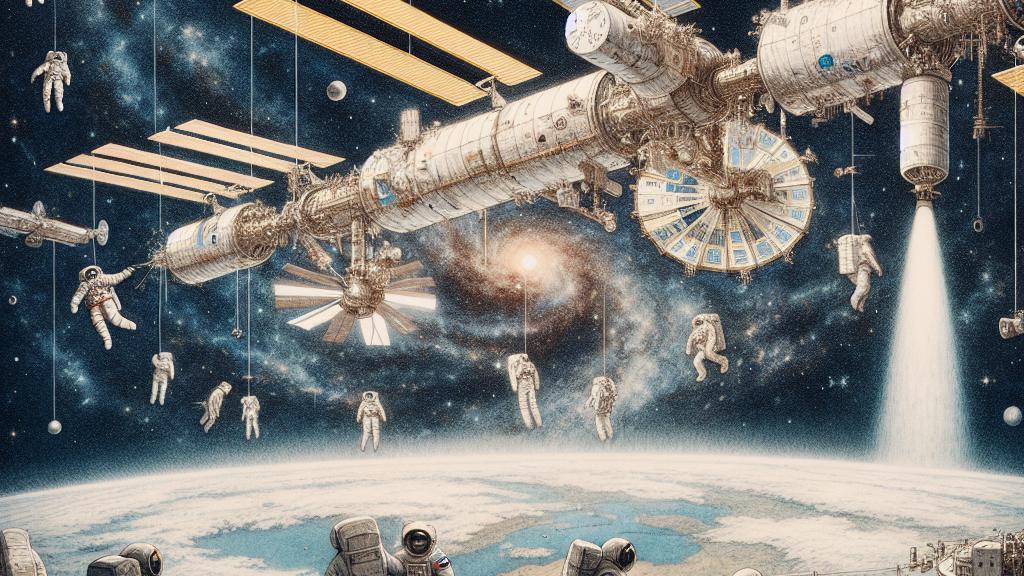Unresolved Air Leak at International Space Station: Divergent Views from America and Russia
Overview
- Five years into an air leak crisis at the ISS, alarms are being raised.
- NASA considers the issue a critical safety concern, while Roscosmos stands firm in its assurances.
- For astronauts aboard, the urgency of addressing this situation cannot be overstated.

The Ongoing Air Leak
For the past five years, the International Space Station (ISS) has been facing a nagging problem: an air leak from the Russian Zvezda service module. This module is crucial for maintaining a breathable atmosphere for the crew living and working in microgravity. Imagine astronauts floating amidst their experiments, yet dwindling air supplies add an unsettling urgency to their everyday lives! Despite exhaustive investigations, the core of the leak remains elusive, casting a cloud of uncertainty over the ISS's operations. The module, pivotal for life-support, serves as a reminder that even in the wonders of space, simple leaks can present complex challenges.
Divergent Perspectives
The narratives surrounding this air leak reveal a striking contrast between American and Russian officials. NASA perceives this leak as a serious concern that could spiral into catastrophic consequences if not managed properly. In fact, experts highlight that the air loss reached upwards of 1.7 kilograms a day at one point! On the flip side, the Russian side reassures that the situation is under control, touting improvements they’ve made that reduced the leak to approximately 600 grams daily. A notable example of this stalemate in views is highlighted by Don Platt, who stresses the importance of proactive measures before the leak escalates into something far more dangerous. But how can two space giants look at the same data and draw such different conclusions?
Implications for Future Operations
As the ISS edges towards its anticipated retirement in 2030, dealing with this air leak transforms from a mere operational inconvenience into a pressing dilemma with potentially grave repercussions. With aging modules, particularly Zvezda, being over 20 years old, similar issues may become more frequent, which could jeopardize astronaut safety. This ongoing saga does not just spotlight engineering issues; it illuminates the intricate tapestry of international cooperation in space exploration. The very essence of teamwork is tested here, where trust, transparency, and effective communication are essential for success. In such an unforgiving environment as space, the significance of overcoming this challenge cannot be overstated, making it a pivotal moment for future manned missions.

Loading...